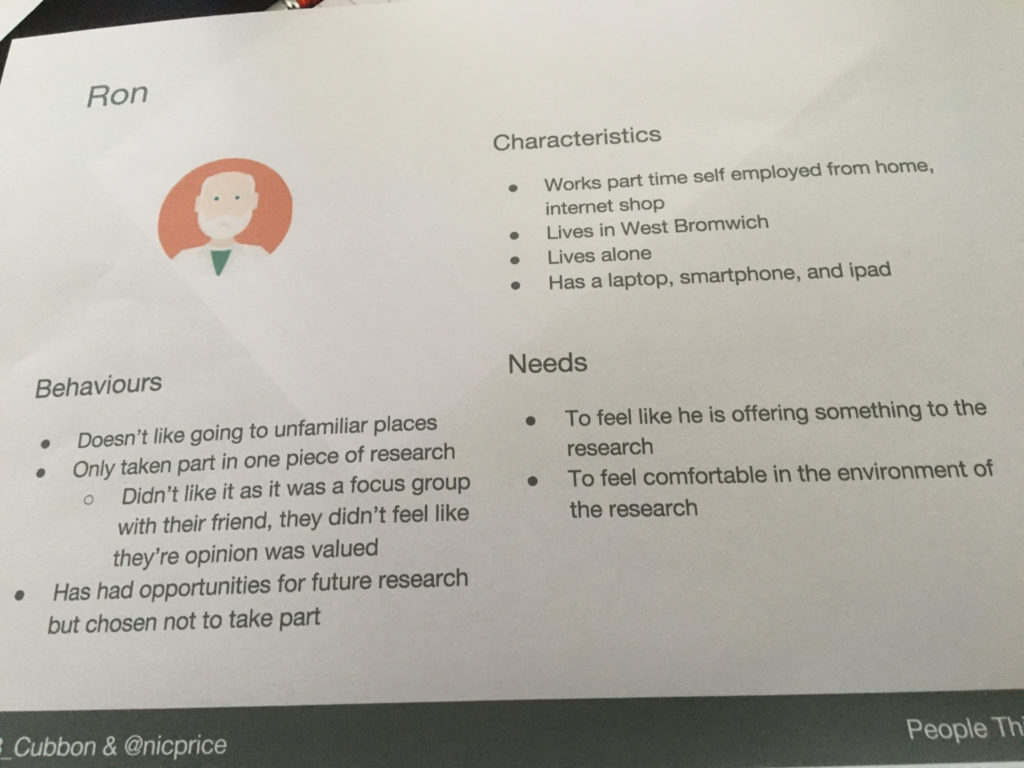

Ben and Nic are in the midst of a voyage of discovery: they are exploring what is it like to be a user research participant and how understanding participants’ needs can help them design better research in the future.
They want to know:
Ben and Nic described their recent research findings, based on five in-depth remote interviews, one day observing a participant recruitment team, and a survey of participants.
They found that:
Ben noted that they also discovered a number of blockers to taking part in research, including bad parking arrangements, travel costs and logistical difficulties, and health conditions, such as agoraphobia.
To illustrate this, Ben and Nic shared two personas they developed during their research. They discussed “Karen” who works 9-5, likes taking part in research, but needs research opportunities that fit in with her schedule. They also discussed “Ron”, who is self-employed, works from home and doesn’t like unfamiliar places. He needs to feel comfortable in the interview environment.

Exercise
Delegates worked in groups to suggest how to design a recruitment advertisement for Karen or Ron.
Nic shared their model for the user journey from the research participant’s perspective, and explained that this model highlights the various needs we could be meeting when recruiting participants. He singled out issues around communicating with potential participants if they are not selected for a particular project, and the waiting involved in the process at different stages of the journey, which can be anxiety-inducing. Reducing this anxiety will help us get more representative responses to feed into the research.
Exercise
Nic and Ben divided the stages of their model research participant user journey into five sections. In groups, delegates were asked to look at a specific stage in the process to suggest ideas that could be prototyped in their alpha stage to improve the experience for Ron and Karen so they are as relaxed as possible so we get the best insight, and afterwards they have the opportunity to give further ideas.
Ideas included texting information to participants, holding information meetings in cafes to explain the process and answer questions, arranging transport for participants, holding evening/weekend interviews, checking in with participants to confirm details and address any last minute worries, and allowing time between sessions so moderators can come out and talk to the participant before the interview. Delegates also suggested offering home visits, establishing the participant’s comms channel of choice and their preferences for payment method.
Nic and Ben concluded by emphasising that the research journey starts before the camera starts!
A Senior User Researcher in Government, currently at HM Courts and Tribunals Service leading on the Strategic Service design of a Reformed Justice System. Previously from Office for National Statistics. Ben has expanded and led research teams of various skills. He has a strong methodological background with a Masters in Investigative Psychology.
A Veteran π-shaped webhead, information architect and service designer, Nic has headed up digital product and service teams at the BBC. Since 2007 has worked as a consultant and contractor, researching, designing with clients large and small in both public and private sectors.